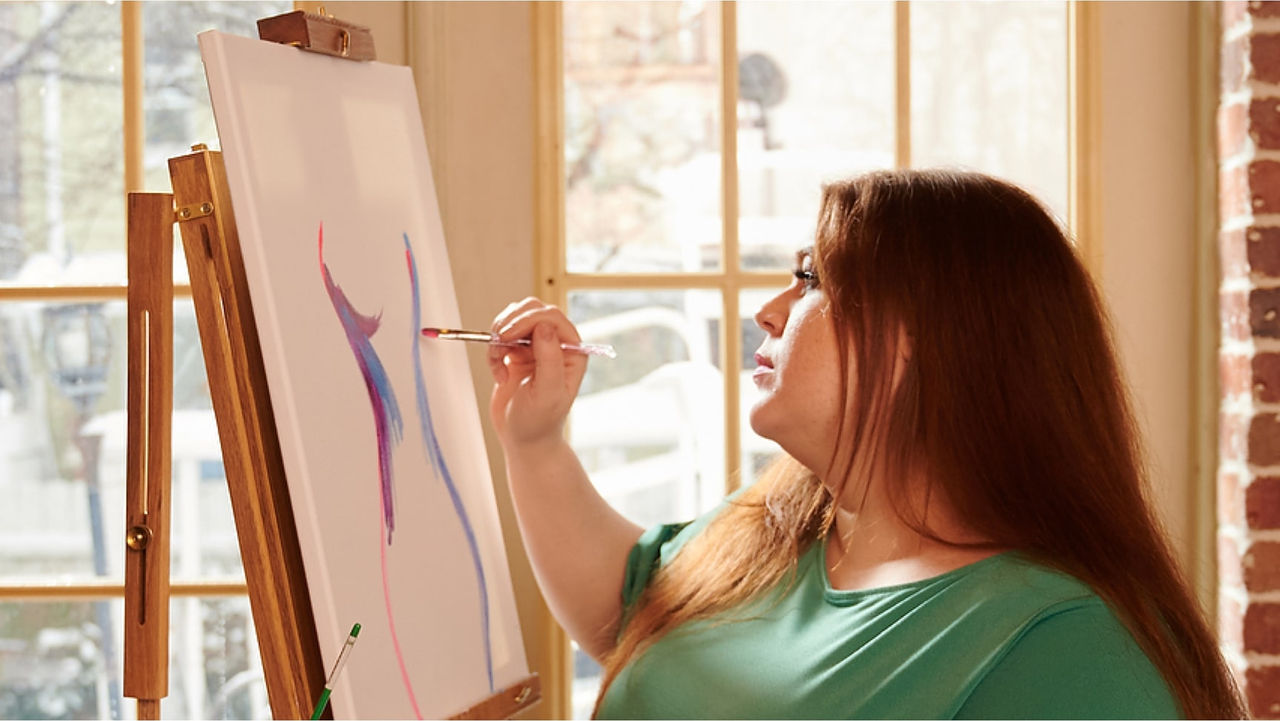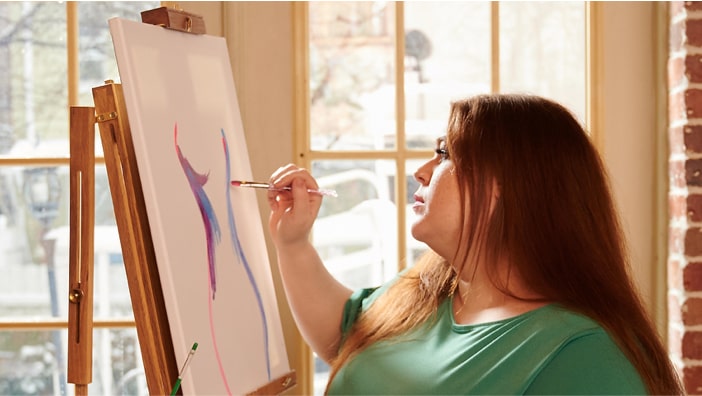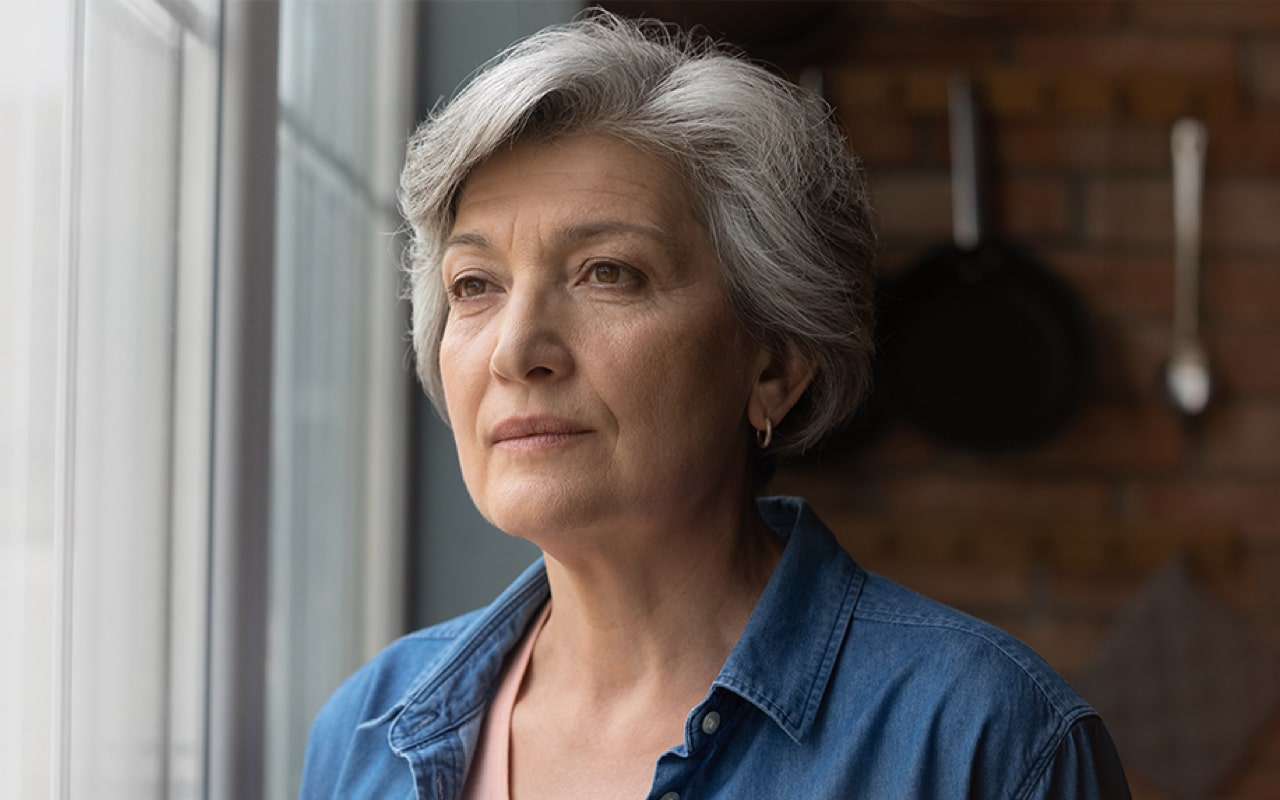It’s mid 2019 and Alicia is sitting in the waiting room of a neurologist’s office. The last year had been a whirlwind of confusing symptoms and doctor appointments. The latest theory, and why she was waiting to see a neurologist, was that she has myasthenia gravis (MG), a rare neuromuscular disease that can cause extreme fatigue and muscle weakness.
The possibility that her symptoms were caused by MG had been brought up by doctors before, but since her symptoms had always revolved around her eyes, she had never been specifically tested for MG.
Now, her symptoms were getting worse and affecting much more than her eyes. Alicia had started having severe muscle weakness, so much so that she needed help to walk, stand up from a chair and even to hold a fork. Most concerning of all to Alicia was that her voice, what she needed most as a singer, was at times an inaudible whisper.
As she waited for her name to be called, Alicia turned to her songwriting partner, who had come with her to the appointment.
“I don’t care what it is, just please not MG. I can handle anything but MG.”
Alicia was a successful, young singer-songwriter in New York, living the life that many artists dream of. She worked closely with other talented songwriters, traveled the world and helped write popular songs in both the United States and abroad. Some of Alicia’s songs were featured on children’s TV shows like Dora the Explorer and Sesame Street.
“I was living life on my own terms, just as I always planned,” Alicia said.
Alicia lived a fast-paced life, writing and recording music almost every day. She had big goals, but her plans took a turn a couple of years ago. One day, after a long stretch of writing and recording, Alicia noticed her eyelid drooping. The eyelid drooping got worse over time, and people began asking her why her eye looked so small. She figured she was just tired, but the droopiness persisted. She saw an eye doctor who told her it was probably just allergies.
I was living life on my own terms,
just as I always planned.
Next came double and blurry vision, which often occurred at night. This time she went to see a team of associates, a neuro-ophthalmologist and an optometrist, who agreed it looked like myasthenia gravis. But before she left their office, they tested for another rare disease that affects the eyes and face. She tested positive at the time.
Were her symptoms because of a comorbidity or another condition besides MG? Her doctors couldn’t yet be certain, so Alicia did research online about myasthenia gravis symptoms.
“It didn’t sound like something I was experiencing,” she said, noting that her symptoms were exclusively eye-related at the time.
But that soon changed when her symptoms grew more generalized. She began experiencing muscle weakness that progressed so quickly that she needed help to walk, get dressed and eat. And her voice was growing weak.
When a doctor officially diagnosed her with myasthenia gravis, Alicia felt relieved. It meant that her symptoms were real and not a result of an overactive imagination or anxiety, as some people had been skeptical of.
“The diagnosis provided validation that it wasn’t all in my head,” she said, stressing how difficult it is not to be believed.
A lot has changed for Alicia since her myasthenia gravis diagnosis, but she still has the same drive and passion to live each day to the fullest. Once a self-proclaimed “workaholic,” Alicia has learned to slow down and plan ahead so that she can still enjoy her favorite activities as much as her symptoms allow. What used to be common, everyday things for Alicia now have taken on new meaning.
“I used to take things for granted,” she said. “Now I’m grateful if I can do even simple tasks, like wash my hair or do the dishes. I can’t always do those things, so I appreciate days when I can.”
Alicia has turned to friends and family members for support throughout her journey, from diagnosis to management of symptoms. They stay in touch via phone calls and social media—just like they did when Alicia was traveling extensively before her myasthenia gravis diagnosis.
“I tend to isolate myself when things get overwhelming,” she said. “I have to remind myself to ‘go where it’s warm’ by letting others help me.”
Her loved ones often know what she needs to hear on bad days—even if the words are her own. A friend encouraged Alicia to record a video message to herself on one of her good days. When he shared the video with her later on a bad day, it helped Alicia remember that there will always be good and bad days and that the bad days won’t last forever.
When she feels stressed, Alicia tries to manage it with a Zen-like approach. She finds painting and listening to music soothing, and she tells herself that if something won’t matter five to ten years from now, it won’t matter today either. As someone who lived large with work and world travel before her MG diagnosis, Alicia now strives to find some balance in how MG affects her life.
I have to remind myself to ‘go where it’s
warm’ by letting others help me.
While Alicia is concerned about how MG may affect her ability to continue singing, she has learned to conserve her energy and take breaks while recording music so that she doesn’t wear herself out.
She once wrote a song about getting diagnosed with MG, which she recorded and posted online where others in the MG community could find it. She later learned that someone with myasthenia gravis who was hospitalized had listened to the song on repeat for hours to help her keep going.
“I’d always intended to use my music and art to inspire others to overcome their own challenges in life and to help people feel less alone,” Alicia said.
So while Alicia once told her songwriting partner that she could handle anything except MG, she’s handling it. She’s living a life in spite of MG that is an inspiration to others. By mixing her MG journey into her music, she aims to help others with myasthenia gravis find their voice too.









